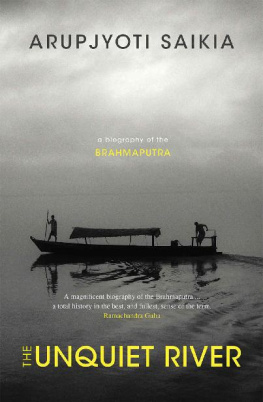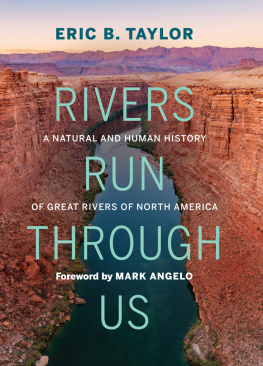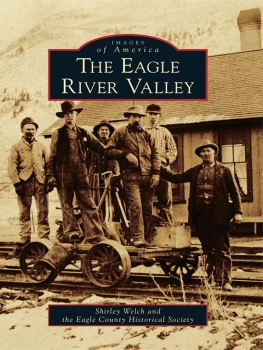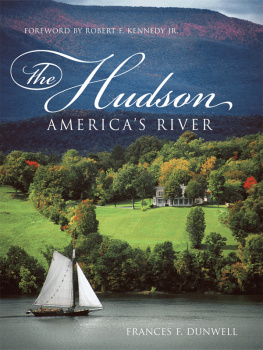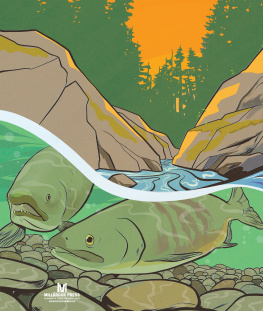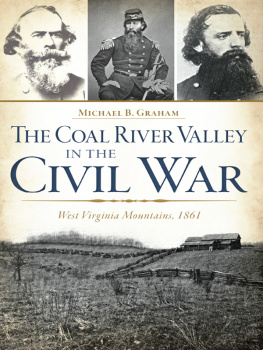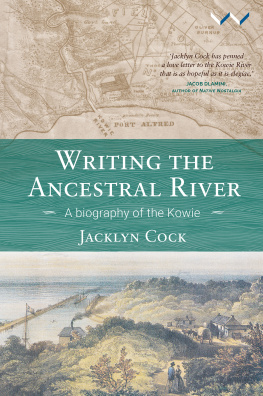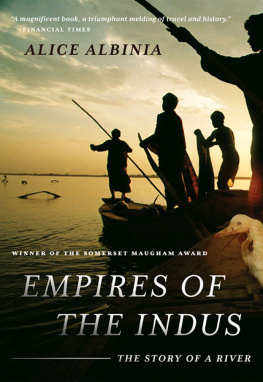Arupjyoti Saikia is already known to be the leading historian of Assam. With this magnificent biography of the Brahmaputra, he has also established himself as Indias pre-eminent environmental historian. This book beautifully and seamlessly transcends conventional binaries of hill and plain, land and water, economy and culture, social science and natural science. Using a dazzling array of primary sources, Saikia constructs a compelling narrative of the rivers journey from geological time to the present, evoking the Brahmaputras many moods, the forms of human livelihood it enables and constrains, the forms of non-human life it sustains and enhances. This is a total history in the best, and fullest, sense of the term.
Ramachandra Guha (Historian and Biographer)
This is a masterpiece of environmental history. Arupjyoti Saikia weaves together multiple scales of timefrom geological history to sudden disastersin bringing the Brahmaputras history to life. Exhaustively researched and beautifully written, the greatest achievement of this book is to tell the stories of those who live by, and depend on, this great river. One of our finest historians, Saikia forges a new path in writing the biography of a river and its people. In doing so, he illuminates some of the greatest environmental and political challenges of our time.
Sunil Amrith (Professor of History, Department of South Asian Studies, Harvard University, USA)
Arupjyoti Saikias history of the Brahmaputra springs from two big ideas. The first requires treating natural and human history of the river in a coeval fashion. The second insists on a visualization of riverine environmental history as inseparable from the environmental histories of mountains and plains that are the source regions and companion terrain of the river. Saikia discovers the many registers, including literature and poetry, hydrology and agrarian history, in which life in and around the Brahmaputra is imagined, experienced, transformed, and ultimately narrated. A peerless contribution to scholarship, this book will inform and enthral all readers.
K. Sivaramakrishnan (Dinakar Singh Professor of Anthropology and Professor of Forestry and Environmental Studies, Yale University, USA)
With rich stories and gripping narratives, the author invites you to take a boat to the middle of the river, swim across certain depths, and get [y]our feet wet in the shallows. What a remarkable journey across space and time, allowing you to witness the intimate relationships and co-evolution among the river, the floodplains, the highlands, and many lives struggling and thriving with them! Read the book; take the journey.
Ling Zhang (Associate Professor of History, Boston College, USA)
Lucky Brahmaputra, lucky Assam! If a river could get to choose for its biographer the most learned, comprehensive, scrupulous, and yet sensitive scholar available, the Brahmaputra could not possibly have done better. Saikias superb study is a model of interdisciplinary learning, hydrological knowledge, and historical depth. The Yangzi and Indus must be green with envy.
James C. Scott (Sterling Professor of Political Science and Anthropology, Yale University, USA)
What kind of history can be told of a region by a river which is its lifeblood and lifeline? Crashing down from the Himalayas, moody and impervious to human efforts to engineer and tame it, the Brahmaputra has sustained the ecology of life and society of Assam, on its terms so far. Saikias opus is magisterial, but not without passion, as he describes the humanriver interactions from its geological bases to contemporary hydrological conceits.
Prasenjit Duara (Oscar Tang Professor, Duke University, USA)
No longer is The Unquiet River a mere abstract flowing on the margins of time. Using a historians craft, Saikia reveals the Brahmaputra as a vibrant force of mud, silt, and fury that has played a part in the making of social worlds and the shaping of political possibilities.
Rohan D Souza (Associate Professor, Graduate School of Asian and African Area Studies, Kyoto University, Japan)
An environmental history of the Brahmaputra has long been overdue. Much like the Indus, Mekong, Yangtze, Kaveri, and Ganga, this is a river whose story is laden with not one but many keenly contested meanings, nowhere more so than in Assam. The states foremost environmental historian traces the story of more than just the river. This book contains a forest of narratives of change through time; floods and jute fields, tea gardens and dykes, grasslands and flood plains all come alive with a cast of human characters whose dreams and nightmares, hopes and fears do so much to shape the great river. Saikia also warns of the limits to human engineering of a great river with a majesty that still stirs poets, writers, and lay persons alive.
Mahesh Rangarajan (Professor of History and Environmental Studies, Ashoka University, India)
THE UNQUIET RIVER
THE UNQUIET RIVER
A Biography of the Brahmaputra
arupjyoti saikia


Oxford University Press is a department of the University of Oxford.
It furthers the Universitys objective of excellence in research, scholarship, and education by publishing worldwide. Oxford is a registered trademark of Oxford University Press in the UK and in certain other countries.
Published in India by
Oxford University Press
22 Workspace, 2nd Floor, 1/22 Asaf Ali Road, New Delhi 110 002, India Oxford University Press 2019
The moral rights of the author have been asserted.
First Edition published in 2019
All rights reserved. No part of this publication may be reproduced, stored in a retrieval system, or transmitted, in any form or by any means, without the prior permission in writing of Oxford University Press, or as expressly permitted by law, by licence, or under terms agreed with the appropriate reprographics rights organization. Enquiries concerning reproduction outside the scope of the above should be sent to the Rights Department, Oxford University Press, at the address above.
You must not circulate this work in any other form and you must impose this same condition on any acquirer.
ISBN-13 (print edition): 978-0-19-946811-9
ISBN-10 (print edition): 0-19-946811-7
ISBN-13 (eBook): 978-0-19-099040-4
ISBN-10 (eBook): 0-19-099040-6
Typeset in Minion Pro 10.5/13
by Tranistics Data Technologies, Kolkata 700 091
Printed in India by Replika Press Pvt. Ltd
CONTENTS
like mark twains mississippi, the Brahmaputra seems to be an open book, always ready to tell its own story. But it runs deep and wide and encompasses many complexities. Writing a book about such a multifaceted river would not have been possible without the help of many friends. I have relied on the research of numerous scholars and scientists who have spent their lifetimes studying the river and the life around it. I have learned from their conversations, and have liberally used their ideas and findings. At different times and places, I have received generous advice from Katherine Morrison, Kuntala Lahiri Dutta, Mahesh Rangarajan, James C. Scott, Rohan DSouza, Ramachandra Guha, Gunnel Cederlf, Nayanjot Lahiri, Upinder Singh, Robert James Wasson, Tanika Sarkar, Neeladri Bhattacharya, Sugata Bose, K. Sivaramakrishnan, Dipesh Chakravarty, Iftekhar Iqbal, Indrani Chatterji, David Gilmartin, Sumit Guha, Sunil Amrith, Pradip Krishen, Mukul Sharma, Shekhar Pathak, Annu Jalais, Amita Baviskar, Nandini Sundar, Maan Barua, Himanshu Thakkar, Ghazala Shahabuddin, Raman Sukumar, Prasenjit Duara, William Van Schendel, Mandy Sadan, Dan Smyer Yu, Malini Sur, Raziuddin Aquil, Berenice Guyot-Rechard, Shruti Kapila, Sanal Mohan, Bhaskar Vira, Chris Courtney, Anindya Sinha, Debjani Bhattacharyya, Rana Pratap Behl, Gautam Bhadra, Daniel Bander, and Jayeeta Sharma. All have contributed to the making of this book in some way or the other. Kaushik Dasgupta volunteered to read some of the early drafts. I am especially thankful to Mahesh Rangarajan, Robert James Wasson, Gunnel Cederlf, Rohan DSouza, and the late Basudev Chatterji for reading parts of this book. Despite their busy schedules, they generously and carefully commented on sections of the manuscripts. Mahesh Rangarajan read an early draft of the complete manuscript and provided thoughtful insights and comments.

